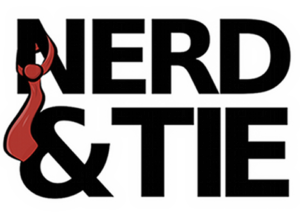 |
| The Case For Network Neutrality |
|
Trae Dorn
TRHOnline.com Exclusive
Imagine you’re pulling onto a tollway. Now I know we don’t have toll based highways in Wisconsin, but just hop along on the metaphor train with me for a moment, okay? Rather than just having a single toll for all drivers though, you’re faced with a choice of two sets of toll booths.
The first set of tolls is only a penny, but the road that follows them is paved with gravel and is only two lanes wide. The second, parallel set of tolls cost $1000, but the road that follows in a six lane wide autobahn with no speed limit. Now, thousands of people are lined up behind the penny toll, which moves at a snail’s pace, while just a single car zooms along the $1000 lanes.
Most people would agree that this would be a pretty ridiculous way to manage a highway system. Now, imagine if the internet worked this way. Right now, the internet works like typical tollway system, where those eight lanes would lead to just one road, and everyone would be charged a fee around $1.00. Sure, the lanes are a little crowded, but traffic moves at a brisk enough pace, and all are treated fairly.
When you go to a website, you effectively are sending a request for data from that website’s server. That data is like the car hopping onto the tollway. The original server pays for their connection to the net, which is the toll onramp, and it finds its way across the globe to you, the user. The idea that all of this data, no matter where it originates from, needs to be treated equally on the internet is called “network neutrality."
Since the internet’s inception, this model has worked perfectly fine for the telecoms and cable companies that make up much of the internet’s backbone. In recent years though, multimedia content providers like YouTube, Revver and iFilm, along with telephone alternatives like Vonage and Skype, have started to become the larger movers in information, as opposed to the more traditional text and image based internet it was built for. The amount of heavy traffic on the internet has increased over the last few years because of this change.
The fear that many content providers have is that as the major telecoms consolidate, that they will begin to charge companies like Google’s YouTube additional fees to transfer data at preference over other providers. And while the deep pockets of many of these larger corporations could afford these rates, small startups and independent content creators
would be left out in the cold.
According to “Save the Internet” (http://www.savetheinternet.com), a pro-network neutrality organization, these fears are not unfounded either. They point to statements like those made in 2005 by William L. Smith, Chief Technology Officer of BellSouth, to reporters that companies like BellSouth should be able to charge one website to have its pages display faster than its competitors.
These network neutrality fears are what have left the FCC deadlocked over the pending merger between BellSouth and AT&T. The merger, which was expected to be approved rather quickly by the FCC, has sat deadlocked for months. Those opposed to the merger have cited fears of possible movement towards non-network neutral policies that could emerge from
a merger of this size.
Even after FCC Commissioner Robert McDowell, the possible tie-breaker, who had recused himself due to a possible conflict of interest was told by the FCC General Counsel Samuel Feder that he would be allowed to vote on December 8th. McDowell though has since stated that he still would not vote on the issue, and the issue was still postponed beyond the end of 2006. Even if the FCC decides to finally vote on the issue again is if AT&T and BellSouth agree to follow the recommended guidelines for network neutrality for a set period of time.
In the 109th Congress, several pro-network neutrality amendments to Senator Ted Stevens’s (R-Alaska) Advanced Telecommunications and Opportunities Reform Act were shot down. It was while speaking against network neutrality that Senator Stevens opined his now infamous “series of tubes” remarks. But the very neutrality
unfriendly Advanced Telecommunications and Opportunities Reform Act failed to be passed by Congress, leaving neutrality advocates relieved.
The 110th Congress is much more likely to support network neutrality though, as the newly empowered Democratic party has been much more receptive to its advocates. This would be a massive boon to independent content producers, and would help keep the atmosphere of openness and competition that has allowed technology to grow at such a breakneck pace. In the end, only when the playing field is level, can we all be winners.
|
|
|
|
 |
|


 
|



